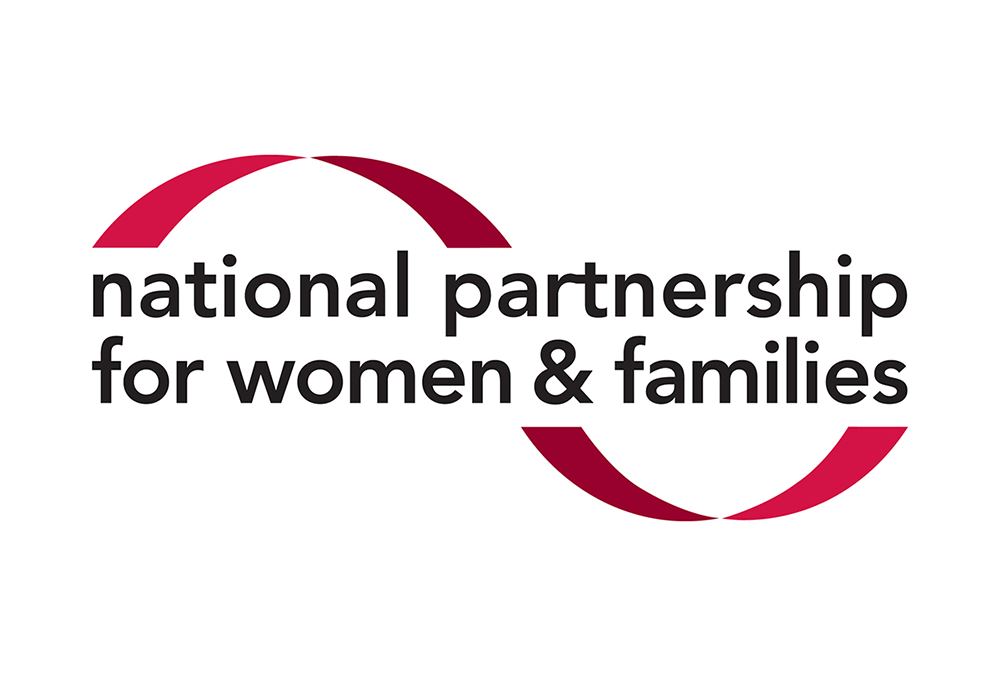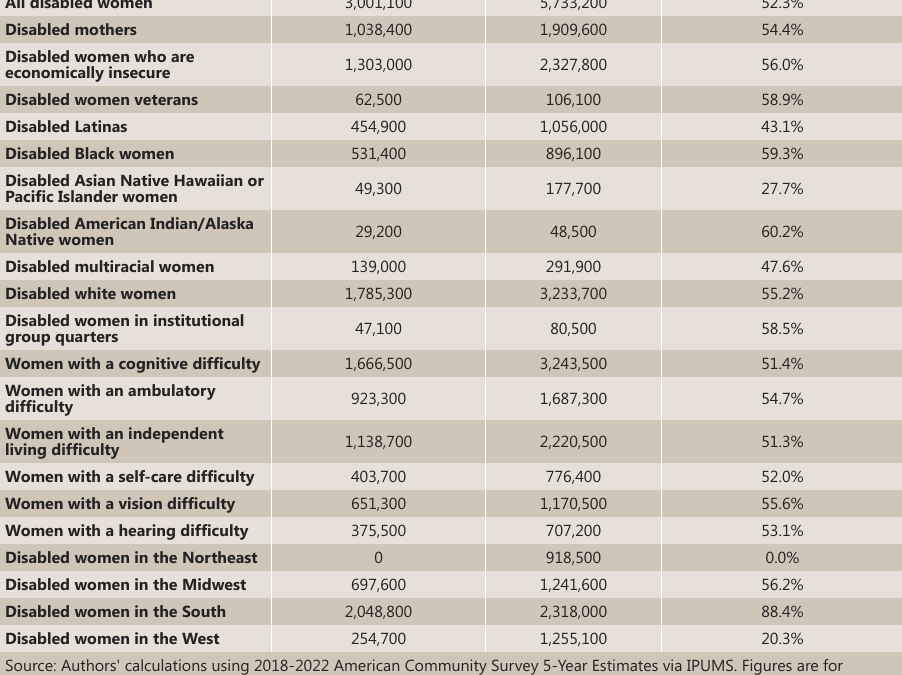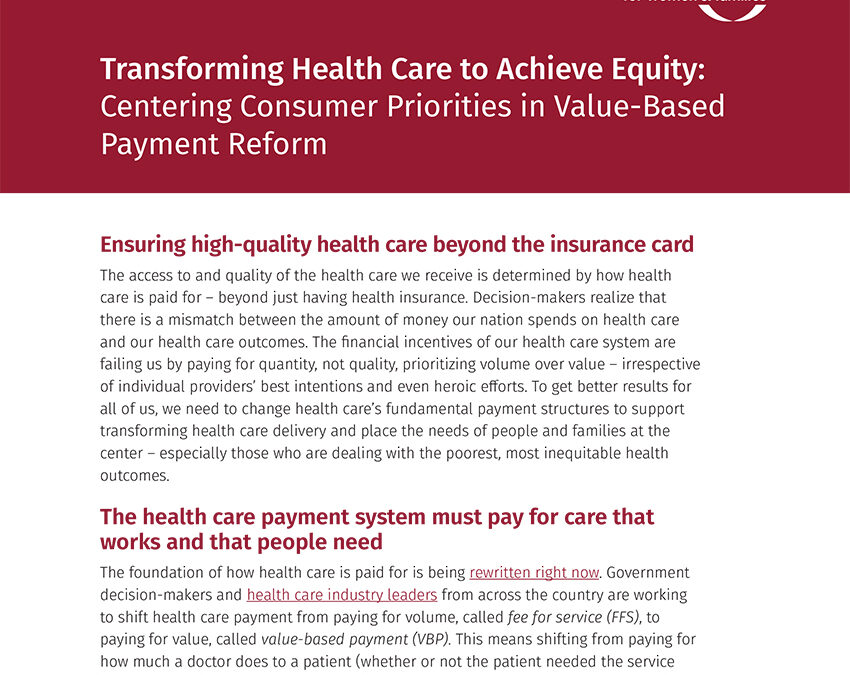Statement of Jocelyn Frye, President of the National Partnership for Women & Families WASHINGTON, D.C. – June 28, 2024 – Today, the Supreme Court upended sound, longstanding, legal precedent that has provided protections for everyday people for decades...
Advancing Reproductive Health Privacy, Mitigating Criminalization
The new HIPAA rule prohibits regulated entities from using or disclosing protected health information (PHI) for the purposes of conducting a criminal, civil, or administrative investigation into or imposing liability on anyone for the mere act of seeking, obtaining, providing, or facilitating lawful reproductive health care.

Democracy & Abortion Access: Restrictive Voting Laws Across States Threaten Freedoms
Our research finds that the states with the most restrictive abortion access policies are also the states with the greatest barriers to voting. This brief explores the intersection of state abortion policy and restrictive voting policies, showing how structured inequities are cemented into how our democracy functions to disadvantage women and people of color.
State Abortion Bans Threaten Nearly 7 Million Black Women, Exacerbate the Existing Black Maternal Mortality Crisis
Analysis from the National Partnership for Women & Families and In Our Own Voice: National Black Women’s Reproductive Justice Agenda reveals the harmful impact of Dobbs on Black women. We find that more than 6.7 million Black women – 57 percent of all Black women ages 15-49 – live in the 26 states that have banned or are likely to ban abortion.

State Abortion Bans Harm More Than Three Million Disabled Women
The Dobbs decision has only compounded the longstanding barriers to abortion care that disabled people face, including provider discrimination and lack of training or experience with disabled patients, guardians dictating decisions about their reproductive care, denials of care and assistance among religiously-affiliated service providers and intermediate care facilities, transportation difficulties, inaccessibility in health care facilities, and layers of economic obstacles to affording the costs of care.

2024 Legislative Agenda
We urge Congressional champions to cosponsor and advocate for the passage of the following priority bills.
State of the Union for Women
The National Partnership for Women & Families and Paid Leave for All created a this new map to show that in all of the states that have taken extreme measures to ban abortion, none of those states offer paid family leave.

Maternity Care Payment Reform
For the first time, our report assesses the actual impact of maternity care episode payment and maternity care home programs and provides recommendations for improving alternative payment models (APMs).
Glossary of Equity-Centered Payment Reform
Key terms for health equity-centered payment reform
Leveraging Value-Based Payment to Advance Health Equity
We need to change how (and for what) providers are paid, in order to support and incentivize equitable, high-quality primary care.

Democracy & Abortion Access
In a political landscape that moves the question of abortion access to the states, NPWF demonstrates the connection between the representation of women and women of color in state legislatures and better policy outcomes for those seeking abortions.
Fact Sheet: Black Women’s Maternal Health
The United States has become even more dangerous for Black people to give birth. Regardless of socioeconomic status, Black women and birthing individualsNOTE: We recognize and respect that pregnant, birthing, postpartum, and parenting people have a range of gender...
Black Women’s Maternal Health
The reproductive health of Black women has long been compromised by interpersonal, institutional, and structural racism. In addition to contending with social and economic drivers of poor health that undermine Black Americans, they have experienced discriminatory health care practices and abuse from slavery to the present.

State Abortion Bans Threaten 6.7 Million Latinas
The Dobbs decision has unique impacts on Latina communities.

Las prohibiciones estatales para el aborto amenazan a 6.7 millones de Latinas
La decisión de anular Roe v. Wade ha perjudicado a millones de personas en todo el país, impidiendo su acceso al aborto, alterando su futuro económico y poniendo en riesgo su salud e incluso sus vidas. La decisión de Dobbs tiene impactos únicos en las comunidades Latinas.

Transforming Health Care to Achieve Equity
The foundation of how health care is paid for is being rewritten right now. Government decision-makers and health care industry leaders from across the country are working to shift health care payment from paying for volume, called fee for service (FFS), to paying for value, called value-based payment (VBP).
Learning Our Lesson: COVID-19 Emergency Paid Sick Leave Showed the Value of a Robust, Permanent Paid Leave Policy
This brief reviews the research and evidence about workers’ and employers’ need for and use of emergency sick and family leave, implementation and enforcement, and the costs and benefits of the program.
State Abortion Bans Harm More Than 15 Million Women of Color
Dobbs v. Jackson Women’s Health Organization is a decision that is about access to essential healthcare, but also much more than that. It is, at its core, a decision — deeply rooted in sexism and racism — about the role women and people who can become pregnant play in our society.
Discrimination While Pregnant
Any pregnant person may experience pregnancy discrimination. But because of the ways that racism, sexism and ableism have structured the United States economy, pregnant workers’ need for accommodations — and the harms they may face if unable to access accommodations — can differ significantly. Women and people of color are especially likely to be in jobs that are higher risk and lack adequate health and safety protections.
Our Communities Hold the Solutions
A robust body of research has shown that this type of doula support is associated with better childbirth experiences and healthier outcomes for both parents and babies. Today, doula support is available across a variety of reproductive health experiences, including abortion, miscarriage, stillbirth, and fertility treatment, as well as in other life course settings such as pediatric care, preventive health care, critical care, and palliative or end-of-life care
Improving Our Maternity Care Now Through Doula Support
This report outlines the evidence that supports the unique value of doula support across different communities, the safety and effectiveness of doula support in improving maternal and infant outcomes, the interest of birthing women and people in use of doula support, and the current availability of, and access to, doula services in the United States.

